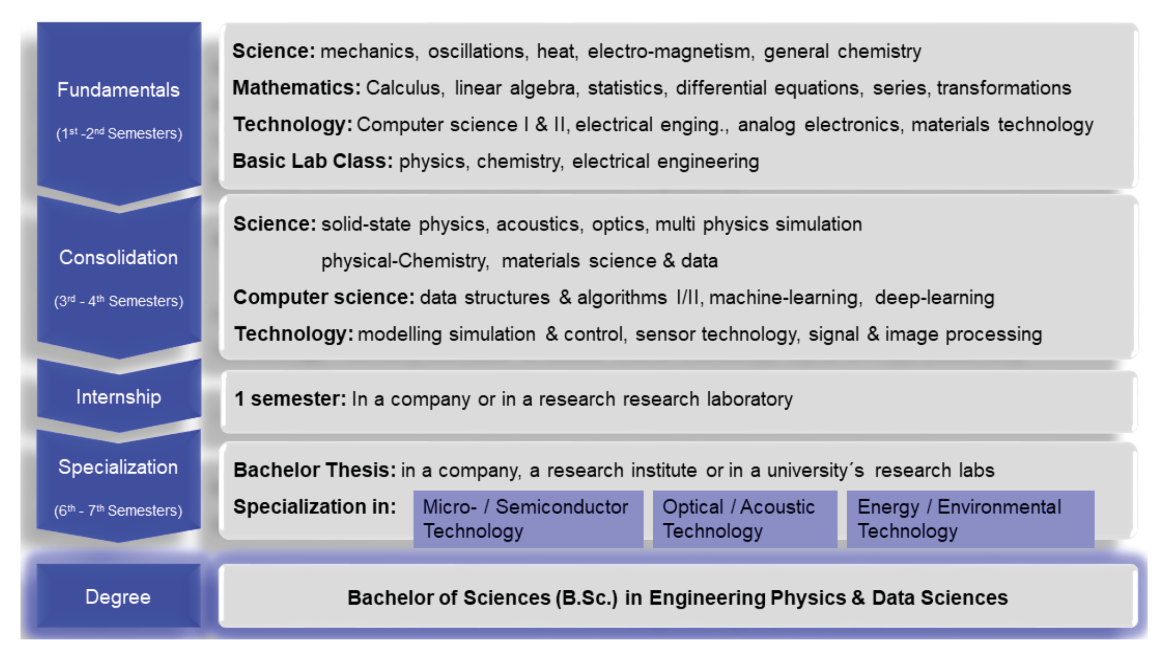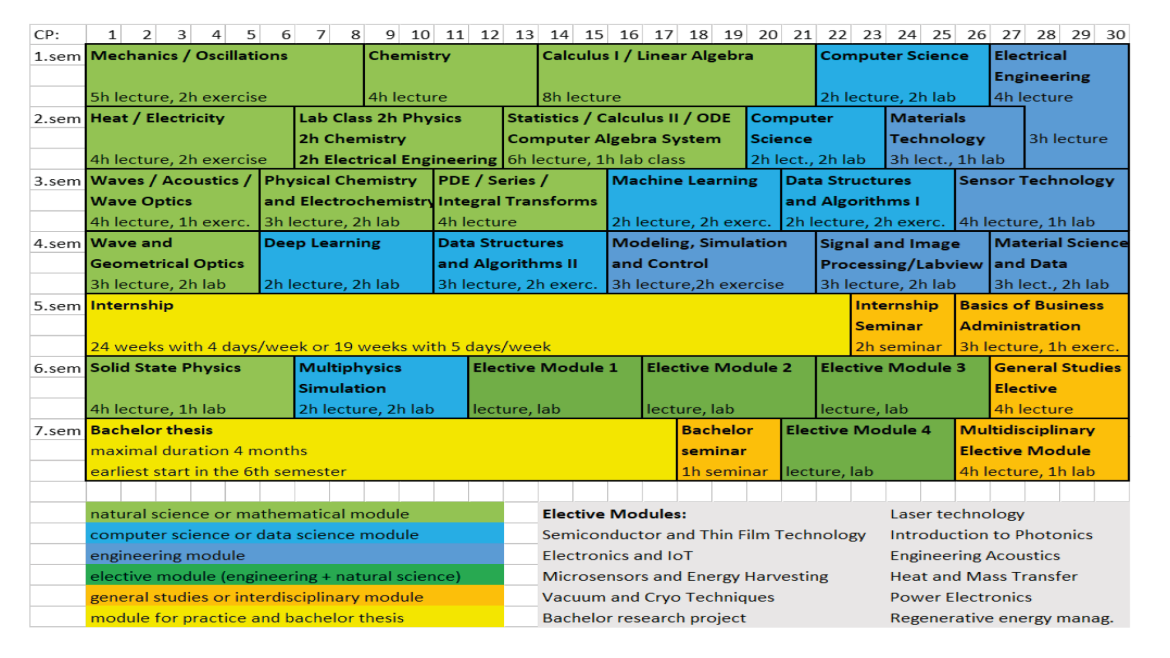Engineering Physics and Data Science (B.Sc.)
Handle the physics of the future: Become an expert in technological innovation with Engineering Physics and Data Science.

In this degree program, you will learn everything you need to be able to work as a physics engineer or data scientist later on.
Physics teaches the basics - that is, you learn how things move (mechanics), how electricity works (electrodynamics), what heat actually is (thermodynamics) and what happens in the world of the tiniest particles (quantum physics).
You will learn how to deal with a lot of information (data) and how to use machine learning to design technological innovations. This involves understanding and evaluating (very) large amounts of data, which helps to find patterns and solutions to complex problems.
In addition, methodological knowledge in data science is taught, which usually includes the analysis and processing of large amounts of data using statistical methods, machine learning and computational science.
More in-depth areas, such as developing new materials, researching acoustics and light (photonics), understanding chips and electronic components (semiconductor technology) or working with renewable energies, which are of particular interest to you, are offered in the form of electives in the 6th and 7th semesters, which you can immerse yourself in.
You not only acquire a lot of knowledge, but also learn how to apply this knowledge to solve real problems. Gaining practical experience is a good way to do this. You will spend at least one practical semester in a company or perhaps in one of our faculty's laboratories. You will write your Bachelor's thesis by working with companies that are active in these areas.
At the end of this Bachelor's degree program, you will be able to develop solutions independently and take on key tasks in your future career as a physics engineer or data scientist.
Prerequisites

The language of instruction in all modules is English.
The prerequisite is a university entrance qualification recognized in Bavaria.
The language requirements are B2 in English and A2 in German, the latter must be proven by the end of the second semester at the latest.
For more information see: www.hm.edu/bewerberinfo

With a Bachelor's degree in Engineering Physics and Data Science, you will work on challenging tasks later on.
A Bachelor of Science degree provides you with the scientific foundations that will make you a sought-after specialist in the current technological change.

The table provides an overview of the structure of the program.
The two numbers in brackets indicate the semester hours per week (SWS, 1 SWS equals 45 minutes) and the ECTS credit points of the respective module.
With the elective modules in the 6th and 7th semesters, the course also offers a high degree of flexibility and allows students to set their own individual focus:
- The combination of six out of twelve currently offered compulsory elective modules results in several specializations (major courses).
- Upon request, up to two elective modules may be chosen from another Bachelor's degree program of the Department of Applied Sciences and Mechatronics or from a Bachelor's degree program from another Department of the Munich University of Applied Sciences (MUAS).
- Also on request one of the six technical elective modules can be completed with a bachelor research project work.
In the higher semesters, the insights gained are further exemplified by current examples and case studies of technical applications. By combining compulsory elective modules, different specializations can be chosen.



